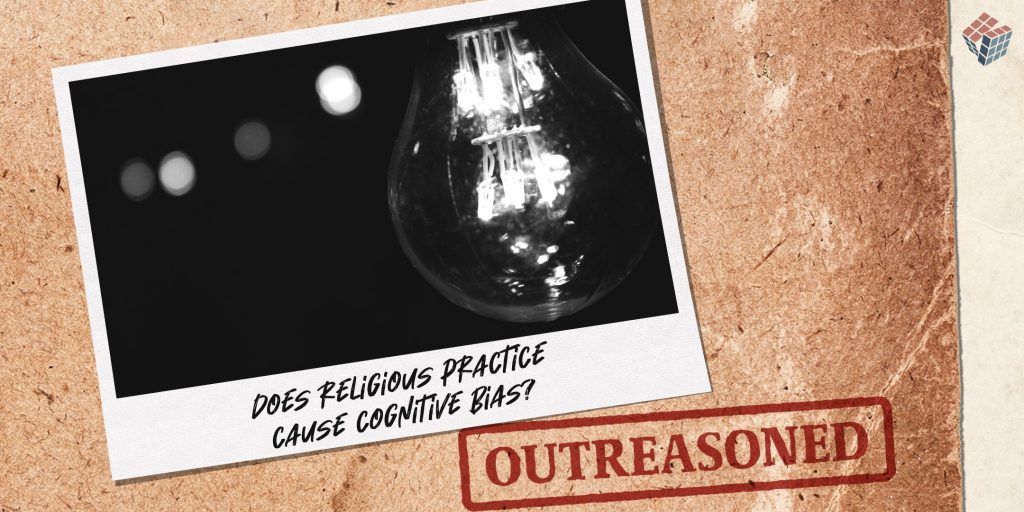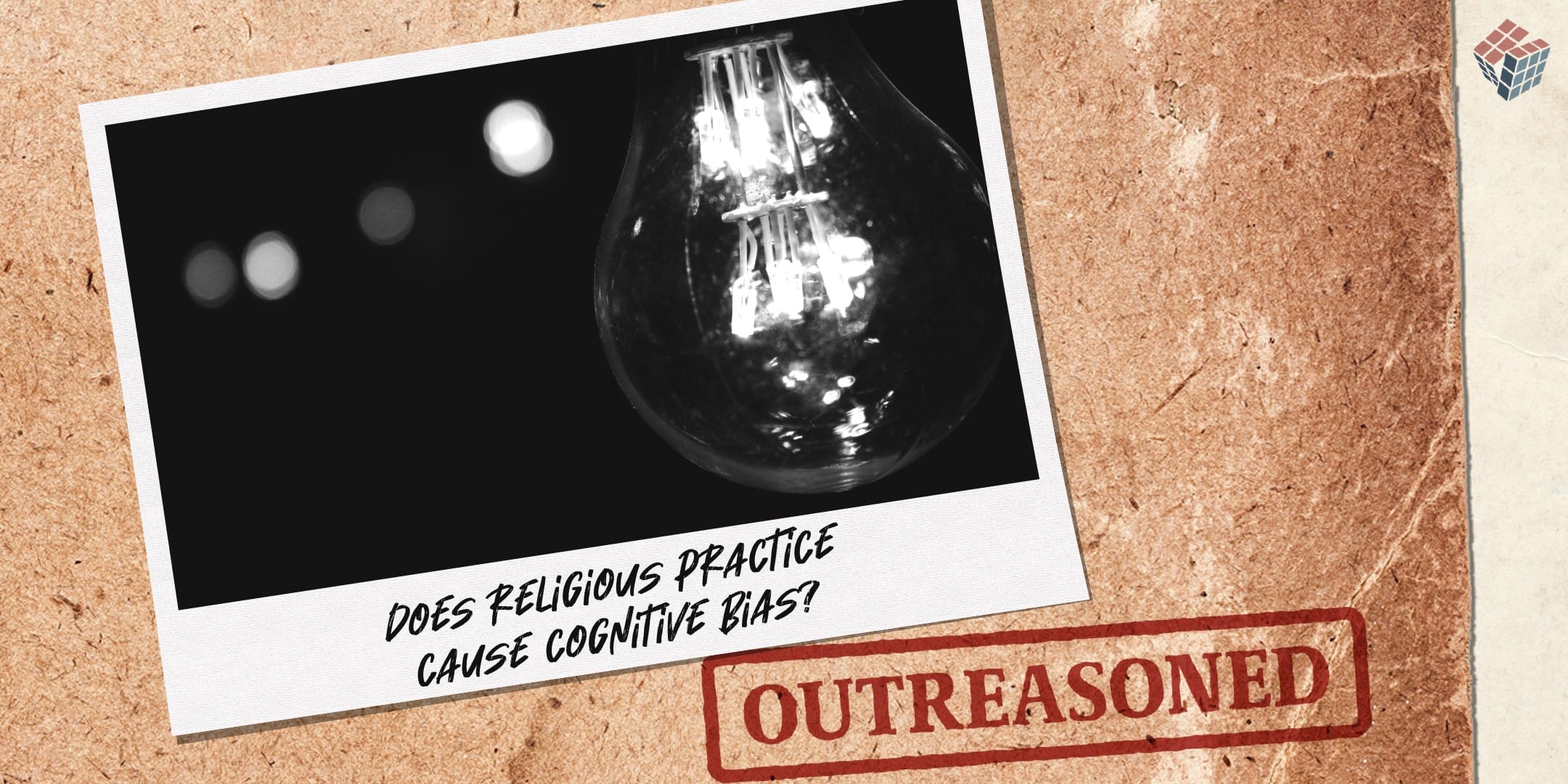
Expectations can drive outcome, as has been seen with the Pygmalion effect. Why do personal development systems often include incantations and affirmations? Because that repetition helps internalize belief. Prayer is no different. If you repeat a prayer that states explicitly or implicitly that you will feel God’s love and presence, you’ll convince yourself that this is what you’re feeling. How do we distinguish positive self-programming from objective assessments about the existence of a deity and about which religion is “true”?
In this criticism, Sohail argues that the prescriptions different religions command to find out if God exists, load the dice and make it more likely that you will believe in that faith. If you worship, stand humbly in prayer, give money away in charity, all for the sake of knowing Allah, there’s a high chance from pure psychology that you’re going to “feel” God’s presence. You’re going to feel “near to Allah” in prayer and therefore be predisposed to believe in Him.
Refutation
In this, Sohail has a point. The psychological aspect of religious belief certainly plays a part. Of that there is no doubt. There is no doubt that hindsight bias is a thing. There is no doubt that confirmation bias is also a thing.
However the objection here by Sohail is unfounded. It is not only religious practice, but every kind of practice that predisposes to these. In every situation where a person must invest or sacrifice something, these biases come into play. These apply to scientific fields, the world of finance, relationships, and raising children. There is no aspect of life which does not carry the potential of these biases. In the article “What Would it Take for an Atheist to Believe in God?” by Damir Rafi, he answers Sohail’s objection fully. We would refer the reader to the article.
A straightforward answer to Sohail’s objection is that though such biases are predisposed by religious practice, objective proofs of God occur to those who are on the correct path. To them God demonstrates His existence not as a subjective “feeling” but as information of the future. When Hazrat Mirza Ghulam Ahmad (as) prophesied that Lekh Ram would die on the day of Eid or a day close to Eid within five years and he died five years later on the day before Eid, that was objective. Because its fulfilment was witnessed by other people. When he prophesied in 1905 of a worldwide calamity that would put the Czar of Russia into a pitiable state, that was an objective prophecy fulfilled by World War 1. After all, he died in 1908. These are objective evidences because they were witnessed by hundreds of millions of people. This is the definition of objectivity. When the 2nd Khalifa (ra) of the Ahmadiyya Muslim Community was publishing in the Review of Religions in 1914, at the turn of WW1 that this would be that calamity in which the Czar of Russia would be humiliated, that was an objective, prospective evidence of God.
The biases Sohail speaks of are applicable only to subjective evidences, not objective ones like these. He refers to them in another article as a ‘commitment cycle’.
When a person progresses upon the path of faith in Ahmadiyya Islam, they are given equivalent experiences in keeping with their spiritual rank. This is shown by the following documented, objective prophecies foretelling who would occupy the seat of the 5th Caliphate in Ahmadiyya Islam. For these individuals and their families, who witnessed these prophecies given to them before the 5th Caliph was appointed, and then who saw him appointed, fulfilling the words of their father, mother, aunt, daughter or son, then these became objective evidences of God’s existence. Take the following documented example taken from a letter written by Mrs Farzana Ajmal of Para Chinar, District Kohat, Pakistan:
“On the day of Huzoor’s death my husband departed for London. I was alone and remained constantly glued to the television. Khilafat Committee was in session and the people outside were anxiously waiting and praying for Allah’s help. Every eye was fixed on the closed doors of the London Mosque. I was very tired and momentarily went into a state that can be described neither as sleep nor wakefulness. In that state I saw a light descend from the heavens and enter the election site. It occurs to me that the Khalifa’s name will begin with the letter ‘M’ (meem in Urdu). Thereafter, that light enters a man whose name is ‘Masroor’. The following words echo in my heart and also come to my lips: ‘Allah has already made His choice and has filled the heart of that person with light.’ At that moment the vision broke and I returned back to full consciousness. I was trembling all over, but internally I was convinced that Allah had made His choice, and now it was only a matter of time before that decision would be revealed. I called my husband who was outside the London Mosque and narrated to him what I had experienced. He then told me that an announcement was being made and asked me to hang up. The same was being telecast on the MTA and the very next moment I heard you announce that Hazrat Mirza Masroor Ahmad had been elected the Khalifatul Masih V. May Allah grant him a long, blessed, healthy and wholesome life (Ameen).”
In another letter dated Nov 2nd, 2005 she further explains:
“Before his election I had never even heard of Huzoor. The same was the case with my husband, neither of us knew him in any way. Only after he was elected to his office did we first see him and hear his name. I am convinced that a Khalifa is indeed made by God.”
How can Sohail and others explain this? This woman was told the name of the next Caliph without ever having met or known him. Their only response is that she and others like her are – God forbid – lying or self deluded. They cannot accept such testimony at face value without entirely undermining their atheism. This is documented evidence and for the husband of the above lady who was informed of the name prior to hearing it, it is objective.
To rely solely on one’s subjective feelings is indeed a dangerous path. That is why God offers objective evidences through his prophets. If you are unwilling to accept those evidences, nor accept the testimony of many thousands of Ahmadis who have witnessed similar objective evidences in their own families, then that is your decision based on your belief that all such people are either stupid or self-deluded. But don’t blame the faith for a lack of objective evidences, of which there are thousands, nay, tens of thousands.
Finally, Sohail makes the following argument as part of his piece. He argues that those who abandon religious belief because of the dangers of cognitive biases live their lives filled with their own goals but also with that of contribution and service to others. As for this notion, that personal goals can replace overarching purpose, it is false. Personal goals are nothing more than arbitrary. They cannot, by definition, replace a purpose determined by the Being who has created you. As for ‘service to others’ the video below examines the notion that any system of morality can be described as moral if the individual takes as his or her purpose anything other than morality itself. Since morality cannot exist independently of one’s own goals within an atheistic framework, it is one’s own personal goals that will always be the motivating factor, and not morality, in any non-theistic philosophy.


